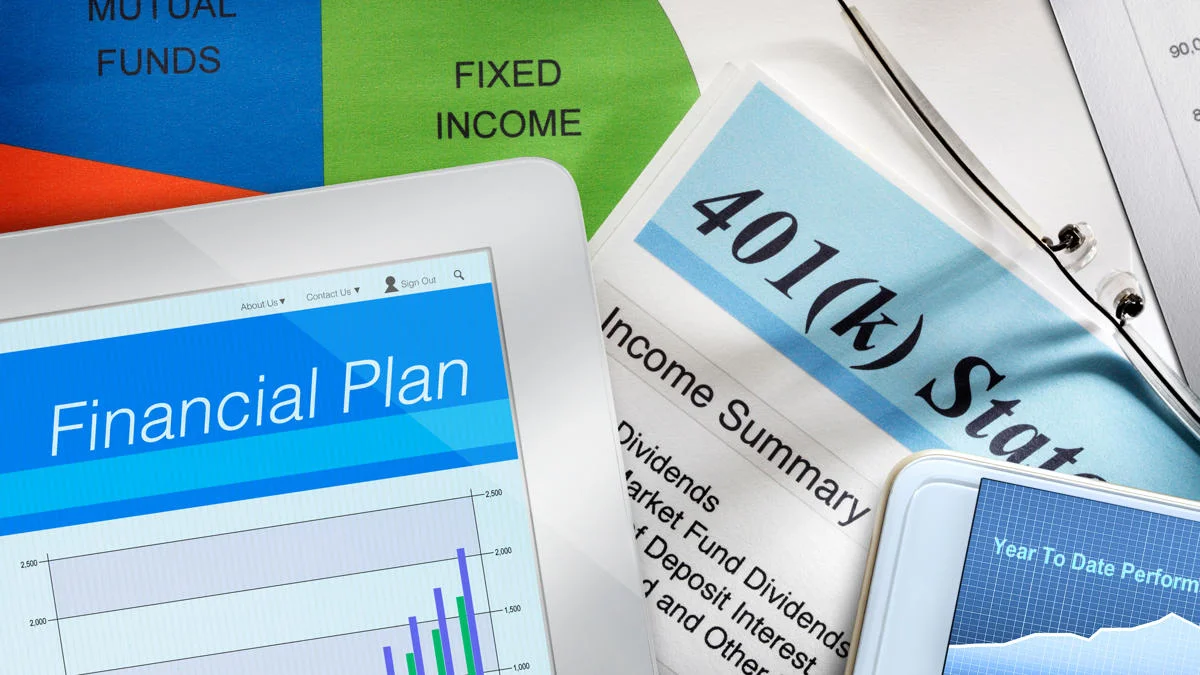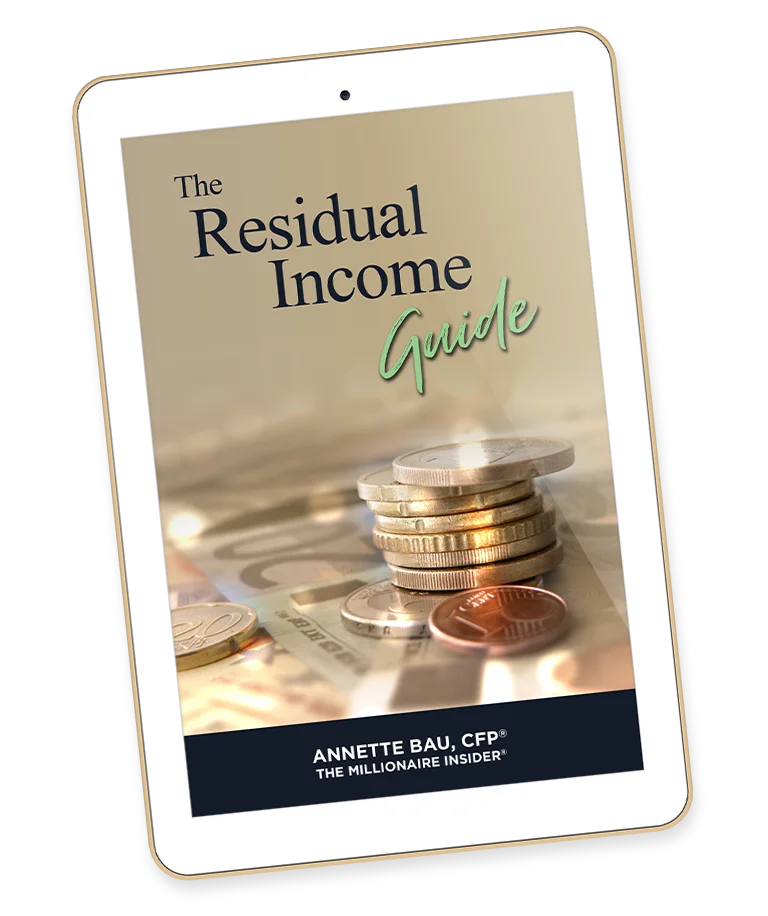
Most people know that one critical element of an effective financial plan is a retirement strategy.
However, many people are unsure of the retirement plan options that are available to them and have questions.
Examples include:
- Should I invest in the stock market?
- What is the ideal retirement age?
- Should I invest in an IRA, Roth IRA, 401K, or Simple IRA?
What is Retirement Planning?
Today in “What is a Retirement Plan?,” you will learn why a retirement strategy is vital to your financial future and the different ways to begin building your retirement plan.
Some people see “the golden years” as something far away in the distant future, while others are already worried that they will not have enough money when they want to retire.
Creating a retirement plan is critical to guarantee your financial security regardless of circumstances.
It is best to customize your plan based on individual factors like age, income, investment goals, planned lifestyle in retirement, and risk tolerance.
Consulting a financial advisor will help you create the best plan for you.
Why is planning for retirement important?
Longer Life Span
While it is great to live longer, this means that you will likely need more money to cover your expenses, especially in retirement.
With people living longer lives, retirement funds need to stretch further. This means you might need to save more money before retiring or find ways to make your money last longer.
One important factor to consider is inflation. Over time, the cost of goods and services tends to increase, which can erode the purchasing power of your savings. It’s essential to account for inflation when planning for retirement to ensure that your money maintains its value over time.
Healthcare costs are another significant consideration, particularly as you age. Medical expenses can add up quickly, especially if you require long-term care or face unexpected health issues. Budgeting for healthcare expenses in retirement can help you avoid financial strain down the road.
Additionally, lifestyle expenses should not be overlooked. While some costs may decrease in retirement, such as commuting expenses or work-related clothing, others, such as leisure activities or travel, may increase. It’s essential to have a realistic understanding of your spending habits and adjust your budget accordingly.
More Money
Generally, as you age, you will have higher costs for healthcare, long-term care coverage, insurance premiums, and living expenses. If your spouse dies, you may have less monthly income from social security and their pension than you need. In addition, most people underestimate the amount of money they will need in retirement.
A retirement plan will help to ensure you have enough money to cover your expenses and live comfortably in retirement.
Choices and Options
A good retirement plan can help you afford the medical care and living expenses you and your family want and need. It can also ensure that your kids and grandkids get the best education. Lastly, it allows you to live wherever you choose, take your family on that dream vacation,  leave money to your heirs, and do whatever else your heart desires.
leave money to your heirs, and do whatever else your heart desires.
What are the types of retirement plans?
Individual Retirement Accounts (IRAs)
An IRA is an individual retirement account that offers tax-advantaged growth and withdrawals.
There are two types of IRAs: Traditional and Roth.
Contributions to a traditional IRA may be tax-deductible, depending on your income and whether you or your spouse are covered by an employer retirement plan. Earnings on the investments grow tax-deferred. This means you won’t pay taxes on the earnings until you withdraw the money from the account.
Traditional IRA withdrawals are subject to income taxes. You may also be subject to an early withdrawal penalty of 10% if you withdraw funds from the account before 59 1/2.
Because tax laws change, always check to confirm the current rules and ages before withdrawing money from a retirement account.
Roth IRA
A Roth IRA is a type of individual retirement account (IRA) that offers tax-free growth and tax-free withdrawals in retirement.
You make Roth IRA contributions with after-tax dollars. This means you have already paid taxes on the money you contribute. Investment earnings grow tax-free. As a result, you do not have to pay taxes on the earnings when you withdraw the income.
Roth IRA withdrawals may be tax-free and without a penalty if you meet the eligibility requirements. However, you may be subject to an early withdrawal penalty if you withdraw earnings before age 59½.
401(k) Plan

A 401(k) plan is a retirement savings plan sponsored by an employer. It allows employees to save and invest for retirement on a tax-deferred basis.
Contributions to a 401(k) plan are made with pretax dollars, reducing your taxable income. Earnings on the investments grow tax-deferred. This means you won’t pay taxes on the earnings until you withdraw the money from the account.
Withdrawals from a 401(k) plan are subject to income taxes. You may also be subject to a 10% early withdrawal penalty if you withdraw funds from the account before age 59½.
Many 401(k) plans offer a matching contribution from the employer, which can be an incentive to save for retirement. Employer matching contributions are usually vested immediately, which means you have the right to keep the employer’s contributions even if you leave the company before retirement.
403(b) Plan
A 403(b) plan is a tax-advantaged retirement savings plan available to employees of public schools and certain nonprofit organizations.
Contributions to a 403(b) plan are made with pretax dollars, reducing your taxable income. Earnings on the investments grow tax-deferred, which means you won’t pay taxes on the earnings until you withdraw the money from the account at retirement.
Withdrawals from a 403(b) plan are subject to income taxes. You may also be subject to a 10% early withdrawal penalty if you withdraw funds from the account before age 59½.
If you have questions or need help creating your retirement plan, start here:

457 Plan
A 457 plan is a tax-advantaged retirement savings plan available to state and local government employees, as well as some employees of nonprofit organizations.
Contributions to a 457 plan are made with pretax dollars, which reduces your current taxable income. Earnings on the investments grow tax-deferred, which means you won’t pay taxes on the earnings until you withdraw the money from the account at retirement.
Withdrawals from a 457 plan are subject to income taxes. You may also be subject to a 10% early withdrawal penalty if you withdraw funds from the account before age 59½.
Pension Plan
A pension plan is a retirement savings plan sponsored by an employer. A defined benefit (pension) plan means your retirement benefit is based on a formula rather than your account balance.
Pension plans are becoming less common as more employers switch to 401(k) plans. However, some government employees and employees of large firms still have access to pension plans.
If you have a pension plan, you may be required to make contributions to the plan. The employer may also make contributions on your behalf.
Pension plans typically pay out benefits in an annuity, providing lifetime income. However, you may be able to elect to receive a lump-sum payout at retirement.
Pension benefits are usually taxable as ordinary income. However, if you made after-tax contributions to the pension plan, those contributions can be withdrawn tax-free.
The best retirement plan depends on your circumstances. As mentioned, contributing factors include age, income, investment goals, and risk tolerance. Always consult a financial advisor to discuss which type of retirement plan is right for you.
Understanding the meaning of common terms will help you select the best elements for your retirement plan.
Important Retirement Plan Terms

Retirement Income
This refers to income received from a social security, pension or retirement account. Retirement income may come from other sources, too. Examples include rental property, side hustles, or part-time work.
Investment Options
Many investment options are available for retirement plans. Examples include stocks, bonds, annuities, mutual funds, and exchange-traded funds (ETFs). Your investment selections depend on your goals, risk tolerance, and time horizon.
Employer Contributions
Many employers offer retirement plans that include employer contributions. Employer contributions may be tax-deferred, meaning they are not subject to income taxes until you withdraw them.
These are often in the form of matching funds, meaning the employer will match a certain percentage of your contributions up to a certain limit. For example, an employer may match 50% of your contributions up to 6% of your salary.
Contribution Limits
The contribution limit for a retirement plan is typically the amount you can contribute each year. This varies depending on the type of plan and, in some situations, your age. Because rules change, always check with an advisor before contributing money to a retirement plan.
Tax-Deductible
This means that the amount funded into a retirement account is not taxed currently, and the funds grow tax-deferred until withdrawal. The funds are then taxed as ordinary income.
tax-deferred until withdrawal. The funds are then taxed as ordinary income.
Pre-Tax
Pre-tax money is income you have earned but have not yet paid taxes on.
After-Tax
After-tax money is income that you have paid taxes on.
Tax-Deferred
In a tax-deferred plan, such as a 401(k) or 403(b), you only pay taxes on the income you contribute once you withdraw the money from the plan.
You will eventually have to pay taxes on the withdrawals from a tax-deferred retirement plan. For this reason, you may pay more tax when you withdraw the money than if you contributed to a Roth IRA, which is funded with money you already paid taxes on.
You should consult a tax or financial advisor to determine your best retirement plan.
Taxable Income
Retirement plans are generally tax-deferred. This means you do not have to pay taxes on the money you contribute to the plan. However, you will eventually have to pay taxes on your withdrawals.
Withdrawals from traditional retirement plans are taxed as ordinary income. In comparison, withdrawals from Roth retirement plans are not taxed because the contributions were not deductible when you invested the funds (These contributions were made with after-tax dollars).
Conclusion – What is a Retirement Plan?
There are a wide variety of retirement plan choices. Therefore, you should always consult a qualified advisor before deciding which plan to use.
If you want to create a financially free life you love, download our free report here:
